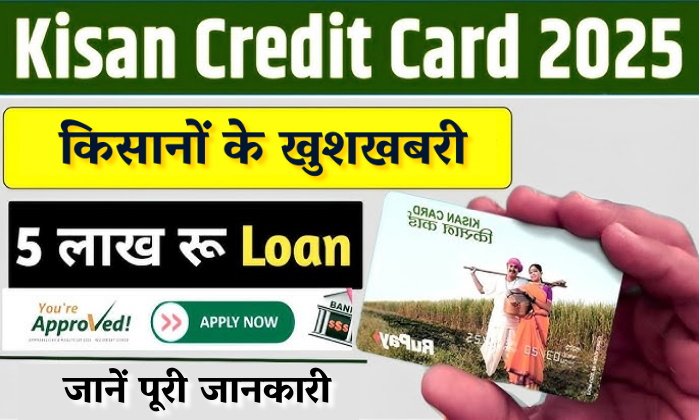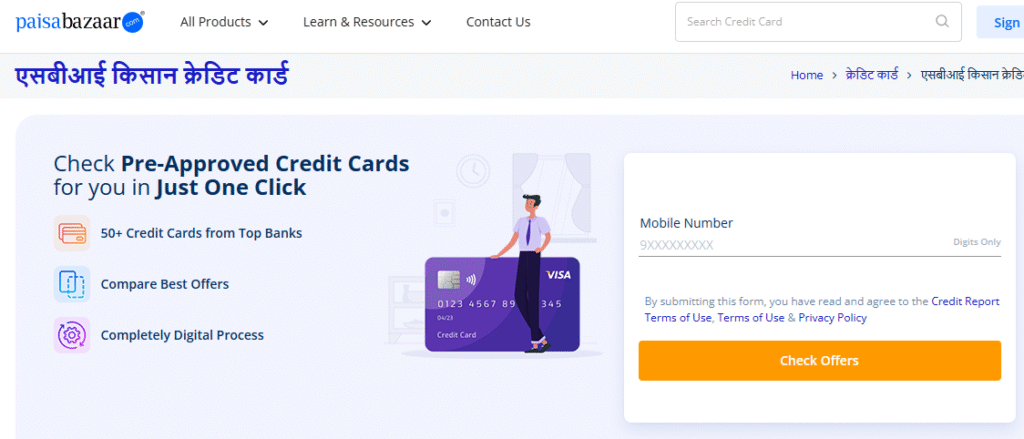
Kisan Credit Card (KCC) program, which was introduced in 1998, is an essential effort to give farmers prompt and sufficient credit support. By streamlining the loan distribution process, it will guarantee that farmers can easily obtain money for both their consuming needs and related agricultural and related endeavors. This is a thorough guide to obtaining your KCC.
Kisan Credit Cards, are what?
The Kisan Credit Card (KCC) is a credit product that offers farmers a simpler and more flexible way to apply for bank loans. Farmers are able to meet their short-term and investment credit needs for cultivation and other related activities thanks to its revolving cash credit facility-like functionality.
Who Can Apply for a KCC? (Requirements for Eligibility)
A broad spectrum of farmers are covered by the KCC plan, which is intended to be inclusive. Who is eligible to apply?
- Individual Farmers/Joint Borrowers: All owner-cultivators who are farmers, including individual farmers and joint borrowers.
- Tenant Farmers, Oral Lessees, and Share Croppers: A person may cultivate land but not own it; this includes sharecroppers, tenant farmers, and oral lessees.
- Self-Help Groups (SHGs) or Joint Liability Groups (JLGs): A KCC may also be applied for by groups of farmers, including sharecroppers and tenant farmers.
- Farmers in Allied Activities: KCC advantages are also available to farmers who work in fisheries (fish farming, aquaculture, marine fishing, etc.) and animal husbandry (dairy, poultry, sheep, goat, piggery, etc.
- Age Requirements: In general, candidates should be between the ages of 18 and 75. A co-borrower under 60 years old—a legal heir or immediate family member—may be required for borrowers over 60.
Numerous Advantages: Why Every Farmer Needs a KCC

Farmers find the Kisan Credit Card to be an essential tool due to its many benefits:
- Low Interest Rates: For loans up to ₹3 lakh, KCC offers extremely low interest rates, usually about 7% annually.
- Interest Subvention and Prompt Repayment Incentive: Banks receive a 1.5% interest subvention from the Indian government. Furthermore, farmers who pay back their loans on time are rewarded with an additional 3% interest incentive, which effectively lowers the interest rate on loans up to ₹3 lakh to as low as 4% annually.
- Flexible and Timely finance: KCC offers a one-stop shop for finance, guaranteeing that farmers get money for a range of agricultural bills and inputs at the precise moment they need it.
All-inclusive Needs Coverage:
- short-term financing for the production of crops (pesticides, fertilizers, and seeds).
- post-harvest costs.
- Create a marketing loan.
- required for consumption in a farmer’s family.
- Working capital for farm asset upkeep and related tasks.
- loan for investments in agriculture and related fields (such as agricultural equipment).
- Collateral-Free Loans: No collateral security is needed for loans up to ₹1.6 lakh (some banks have lately raised this amount to ₹2 lakh). For small and marginal farmers, this is a big relief.
- Debit Card Facility: The majority of banks give KCC holders a RuPay debit card, which offers them great convenience by enabling them to withdraw cash and conduct transactions via ATMs, micro-ATMs, and PoS terminals.
- Long Validity and Annual Review: The KCC normally has a five-year validity period, but it is reviewed every year. An increase in the credit limit may result from a strong payback history.
- Insurance Coverage: The Pradhan Mantri Fasal Bima Yojana (PMFBY) may provide insurance coverage for eligible crops. Borrowers also have the option of purchasing health and personal accident insurance.
- Simplified Process: The KCC program seeks to provide flexible repayment alternatives and a hassle-free disbursement process, frequently connected to the harvest season.
- Digital Banking Access: To help streamline the process, most banks now provide KCCs with digital renewal options via their internet portals or mobile apps (like the SBI YONO App).
Complete Guide to Applying for a Kisan Credit Card (KCC)
The process of applying for a KCC is simple and mostly involves your neighborhood bank office.
Click on Your Bank to Get the Application.
- Selecting the bank you wish to apply through is the first step. regional rural banks, cooperative banks, and the majority of large commercial banks.
- Go to the official Bank website: Visit the chosen bank’s official website. Go to the agricultural and rural banking division of SBI (State Bank of India), for instance, if you decide to use them.

- Find KCC Information by selecting “Agriculture Banking” or “Rural Banking.” The “Kisan Credit Card” option is usually located in this section. You may get comprehensive details on that particular bank’s KCC initiative here.
- Get the application here: The KCC Application Form can be downloaded straight from this page for many banks. Get it and print it out.
Fill out the application and send in the necessary paperwork.
Filling out the form and sending it to the bank are the following steps after obtaining it.
- Complete the application. With caution: Complete the application form accurately with all the requested information. This contains your credit requirements, cropping trends, landholding information, and personal data.
- Attach the necessary files: assemble all required supporting documentation. Typically, these consist of:
- Identity verification: voter ID, PAN card, Aadhaar card, etc.
- Proof of address: utility bills, Aadhaar cards, etc.
- Land Passbook, Khasra-Khatauni, revenue records, or leasing agreements (where applicable) are examples of landholding documents.
- photos the size of a passport.
- Bank Account Information.
- any other documentation that the bank expressly requests.
Questions and Answers (FAQ) for Kisan Credit Card (KCC)
Q1. The Kisan Credit Card (KCC) Scheme: What is it?
Answer: In order to give farmers timely and reasonably priced financing for agricultural needs, such as crop production, post-harvest costs, and related activities, the Reserve Bank of India and NABARD launched the Kisan financing Card (KCC) scheme in 1998.
Q2. For whom is a Kisan Credit Card available?
Answer: Beneficiaries who qualify include:
- Farmers on their own (owners and tenants)
- Sharecroppers
- Joint Liability Groups (JLGs) and Self Help Groups (SHGs)
- Farmers who raise poultry, dairy products, and fish (for related agricultural operations)
Q3. What is the KCC’s mission?
The KCC offers short-term credit for the following purposes:
- Growing crops
- Management after harvest
- Farm upkeep
- Purchasing inputs (pesticides, fertilizers, and seeds)
Q4. Which financial institutions offer Kisan credit cards?
KCCs are given out by:
- Public Sector Banks (such as SBI, PNB, and so forth)
- Individual Banks
- Regional Rural Banks (RRBs)
- Bank Cooperatives
Q5. What is the process for applying for a Kisan credit card?
Answer: You may apply:
- Offline: Bring the necessary paperwork to the closest bank branch.
- Online: Via the PM Kisan portal at https://pmkisan.gov.in or the bank’s website
Q6. What paperwork is needed for an application to the KCC?
Answer:
- Identity verification (PAN card, Adhaar card)
- Address proof
- Documents proving land ownership or a lease
- A passport-sized photograph
- Details of a bank account
- Documents pertaining to income and crops (if needed)
Kisan Credit Card (KCC) Scheme Conclusion
An important financial tool that gives farmers quick, simple, and inexpensive access to institutional credit is the Kisan Credit Card (KCC) program. The KCC makes sure that small and marginal farmers are not compelled to use on high-interest informal sources of credit, whether they are paying for seeds, fertilizer, irrigation, or investments in related industries like dairy and fisheries.
By offering advantages including crop insurance coverage, interest subsidies, low interest rates, and ATM-enabled cards, the KCC initiative helps close the gap between rural India and financial institutions. This program is now even more accessible to millions of farmers nationwide because to the government’s ongoing efforts to automate and streamline the application process through online portals like pmkisan.gov.in.
